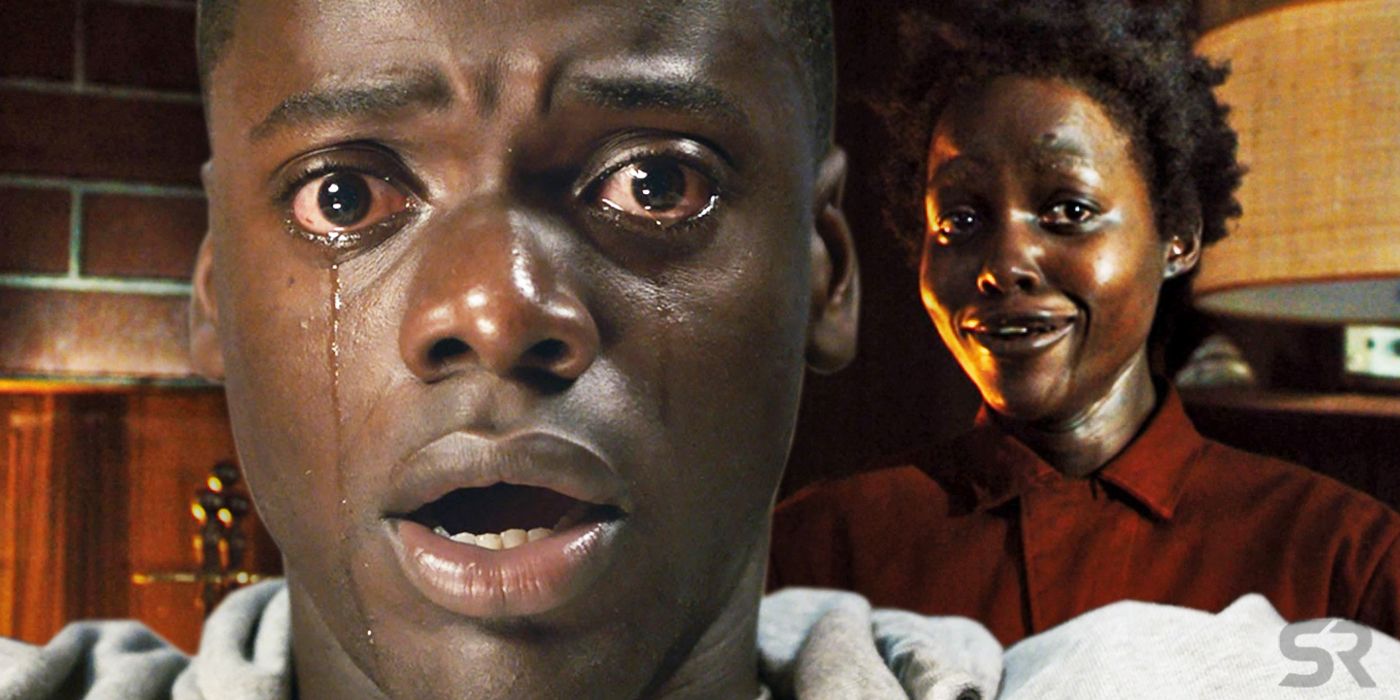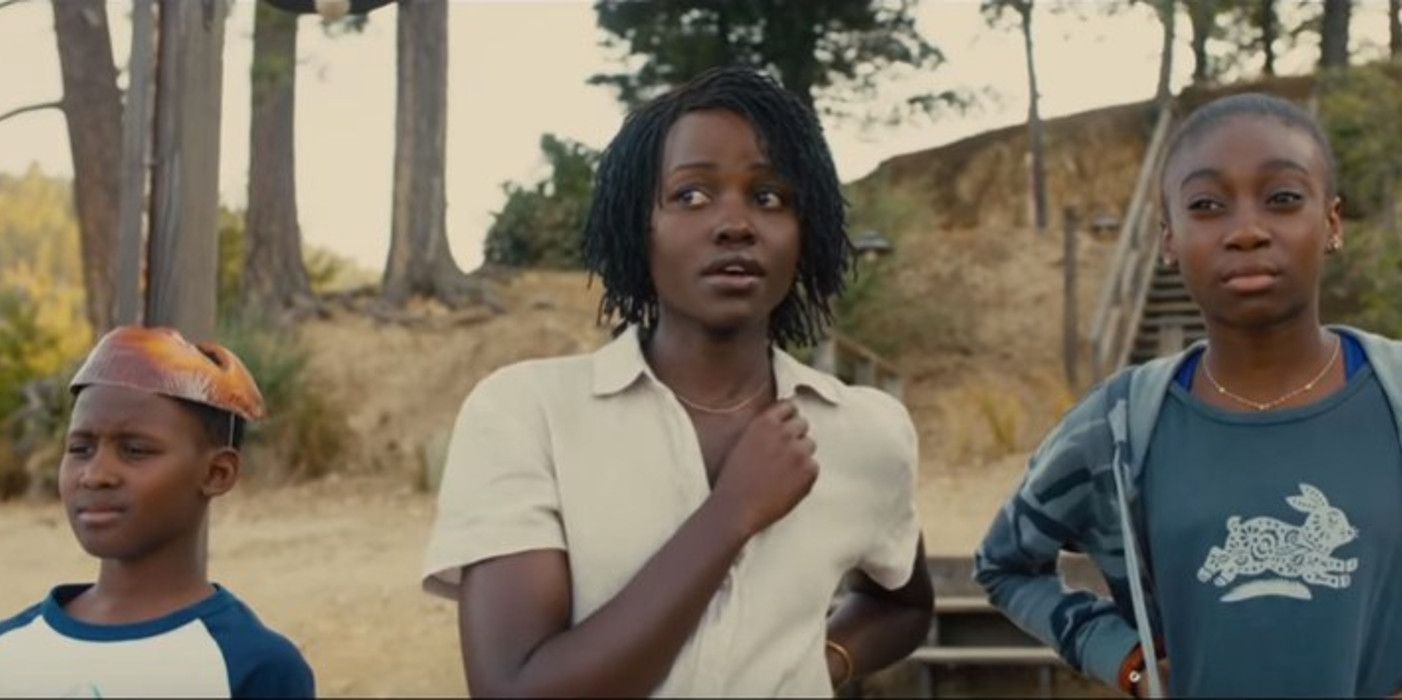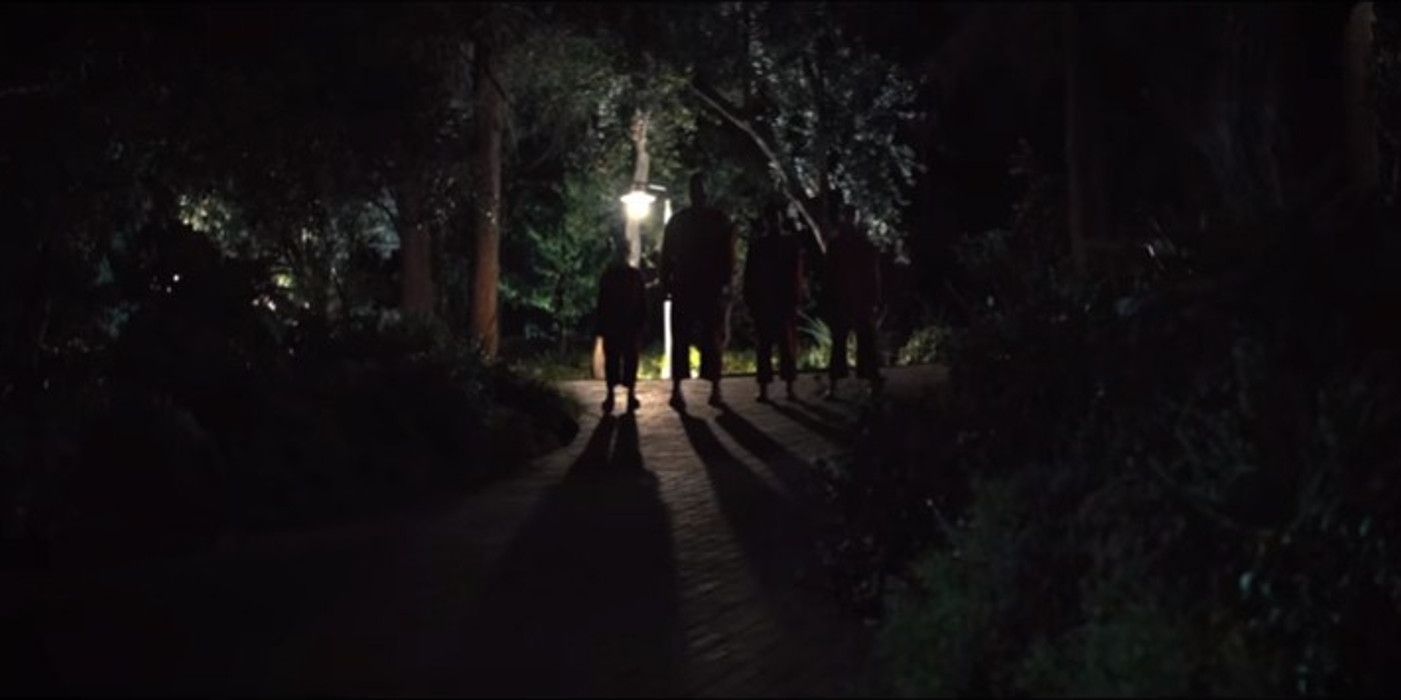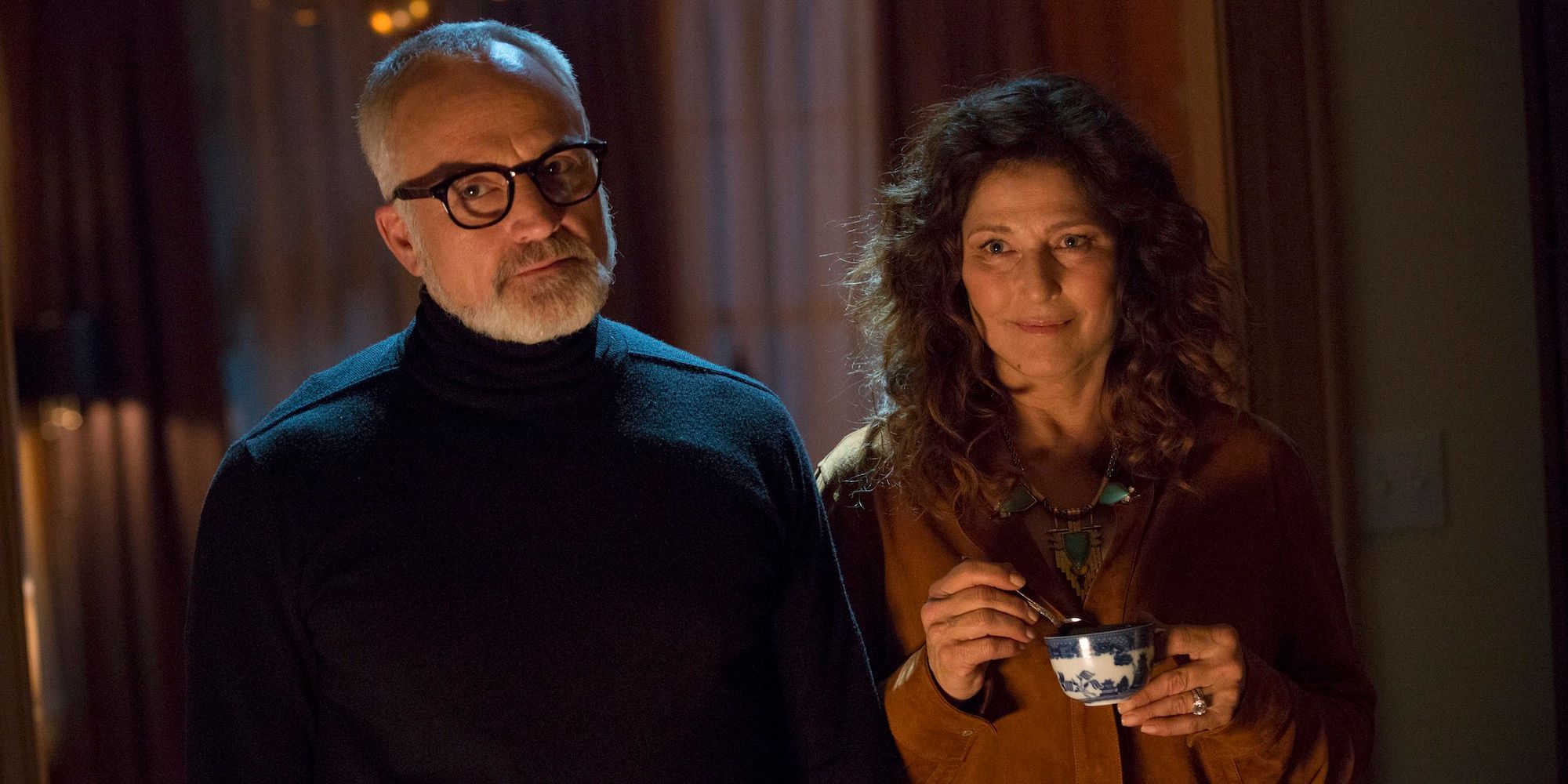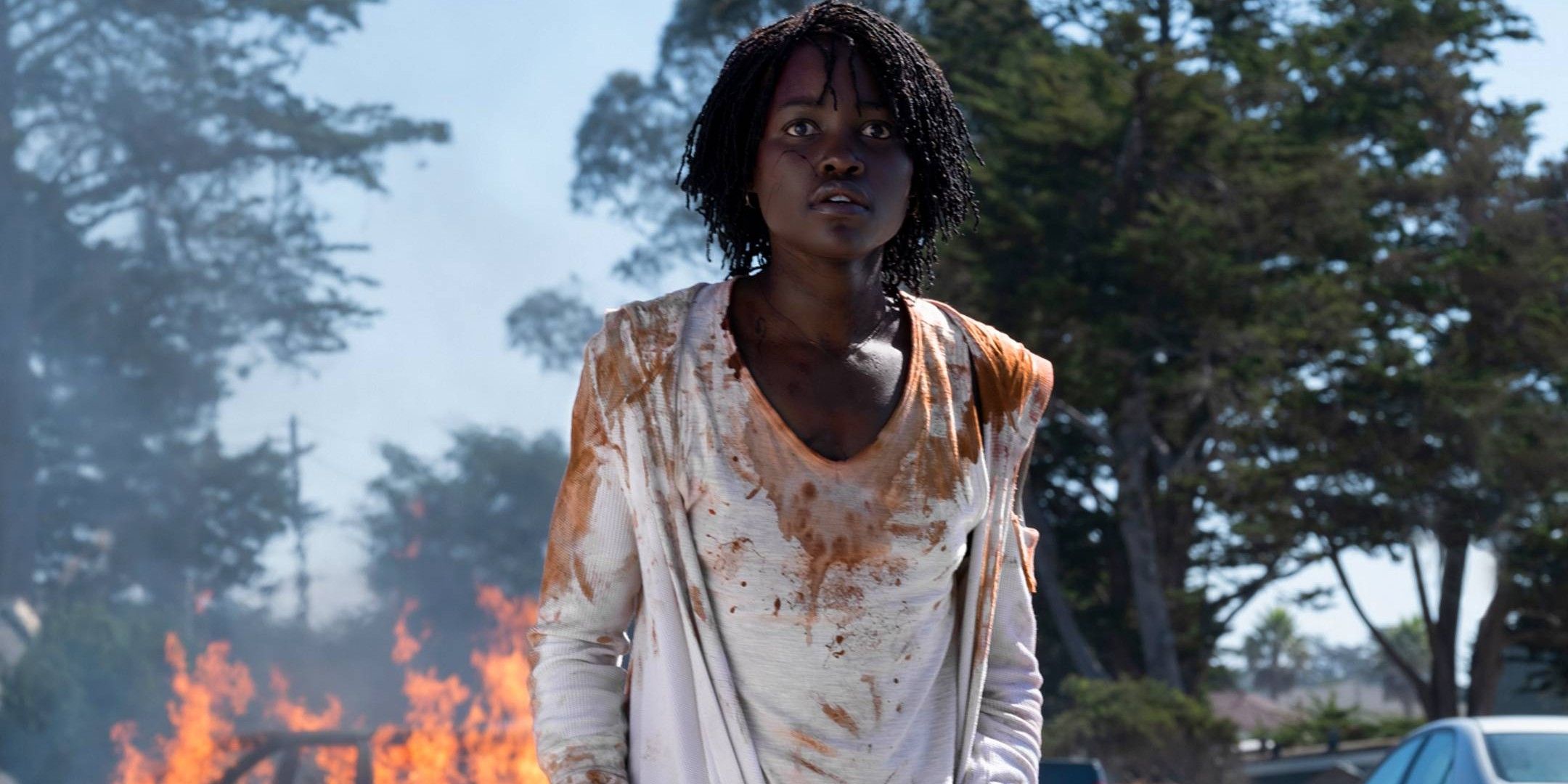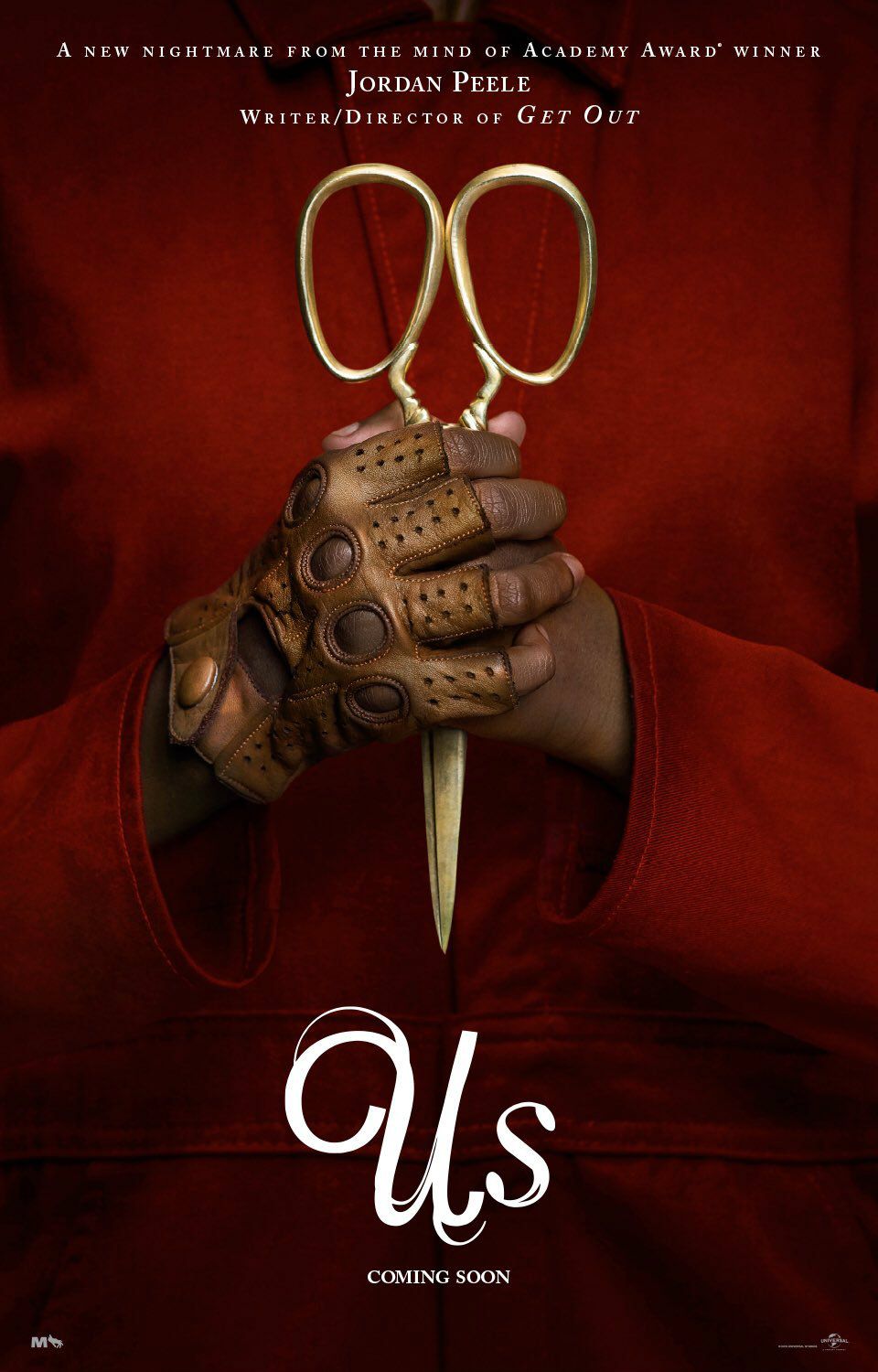Are Us and Get Out set in the same universe? A popular theory has surfaced from the reveal of the first trailer for Jordan Peele's Us: that it is a follow-up of sorts to his Oscar-winning directorial debut, Get Out. The new work shares a lot of thematic substance with Get Out, being a horror story centered on black protagonists, with a firm psychological bent to the premise and chills, and the overlap is so strong fans are speculating that there's a more tangible connection between the two.
Given that we're in the era of cinematic universes, it wouldn't be surprising if this theory was accurate - especially since M. Night Shyamalan managed to backdoor a franchise out of 2000's Unbreakable in Split, which has led to this year's Glass.
Related: Screen Rant's 50 Most Anticipated Movies Of 2019
Do Get Out and Us share more than a genre, a creepy atmosphere, and a killer premise? Let's break down the clues (so far) that these two movies are set in the same universe.
Jordan Peele Says Get Out Had Shared Universe Clues
In an interview with Kevin McCarthy, Peele said that Get Out is full of hints to a wider universe that give him a range of options to weave into future projects. In his words, he “wanted to make a movie you have to watch two times,” and also said that, "I've put some Easter eggs in there and I'll probably continue to weave in the universe in my next movie." That in itself seems like confirmation that Us is set in the same universe as his first feature.
Get Out's setup does have a “first in a series” energy to it, with the idea of a massive conspiracy within white upper-middle-class people who literally buy and sell black bodies. The plot only deals with one family, firmly cementing the notion that this goes deeper than just this one guy's terrible luck. Since Get Out's release, people have been digging into every scene, finding clues to the unraveling mystery and the wider world that Peele has created.
The Similarities Between Get Out And Us
From what we've seen so far, Us has a similar vibe to Get Out. While the trailer leans hard on the central horror concept, Peele's genre-melding approach is very evident. The footage starts with some light family comedy as the main characters are discussing music on a road-trip to a beach vacation, before slowly descending into the eventual madness.
The shots are all static, the colors bold but natural with a heavy emphasis on lighting. The supporting cast - among them Elisabeth Moss and Jonah Hill - are briefly shown to demonstrate the similarly dialogue-heavy propulsion Peele used in Get Out. The setting has the main characters on the back-foot, in a holiday house, isolated and away from their home neighborhood, and the threat is once again existential, with the family battling their own doppelgangers. Our protagonists are defending themselves against being replaced, the same threat underpinning Get Out, wherein white people were putting their brains into black bodies in order to steal their youth and strength, with the original consciousness helplessly watching another person live their life.
The root of Get Out is racial terror, and the ways in which racism manifests itself that often only its targets can really recognize. Being about a black family who are, like Chris, surrounded by white people in a relatively unfamiliar space, Us is using the same parameters for its humor and its horror, looking to make us laugh at the same behavior it will likely then use to send chills down our spine as the narrative takes shape. Get Out is about subtle, insidious racism and the cancerous undergrowth therein, and from the first teaser, Us is setting itself up to be similarly keyed into the anxiety about black folk losing control of their own identities.
Page 2: Is The Second Family In Us Linked To Get Out's Creepy Family?
Is The Second Family In Us Linked To Get Out?
The easy and immediate assumption is that the second family that shows up in Us are from the same organization that are responsible for the brain transplants in Get Out, having now moved into somehow duplicating desirable bodies. It's in the same sci-fi/horror wheelhouse and works as an extension of what we've already seen, creating a new layer of mystery for the characters to uncover. How does duplication work? Are they perfect clones, or something else?
What's more, this premise opens up to an even heftier exploration of "benevolent" racism. In Get Out, the desire for black bodies is based on a belief that they are superior, intersecting with a sense of entitlement – the rich white folk bidding on the bodies believe this is just proper, because they deserve access to a longer, better life, even if the life is stolen from someone else.
Related: Jordan Peele Will 'Seriously Consider' Making a Get Out Sequel
In Us it appears that not only are the people being copied, the copies are then violently replacing the originals. Assuming the other family are being piloted by a well-off set of investors, they've wilfully signed up to take the original's family's lives by force, using whatever means necessary.
Is Jordan Peele's Shared Universe About Something Bigger?
There's an argument here about canon versus theme, and what carries the most impact. A mythology that holds a bunch of explicit connections could be fun and interesting, but that's also a somewhat shallow interpretation of Peele's statement about weaving together a universe. There's also a danger that fans could become more involved in piecing together the connections and evaluating consistency on a material level, rather than absorbing what the individual movies are actually saying.
Us having more than a nod to Get Out somewhere runs the danger of Peele's next movie in the universe being held up as something that will tie everything together – like Shymalan's Glass. Implicit connection, through theme, emboldens the messaging and execution of the movie as a whole and fosters more genuine analysis, as fans are less concerned with hard evidence and more about what the symbolism and representation.
And, to be frank, we don't need any more franchises; we need bold films by fearless creators like Jordan Peele who understand genre and how to tell a great, memorable story. Part of why Get Out was a hit is because it was original and came without any baggage to get in the way of its bigger ideas, and Us deserves to have its own unique identity as well.

